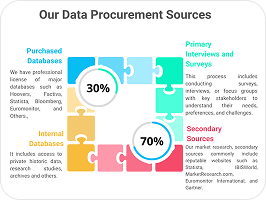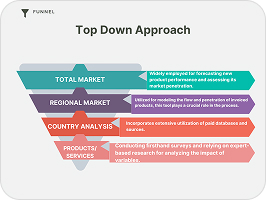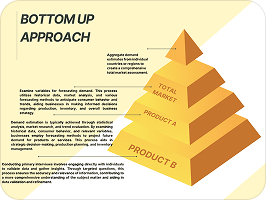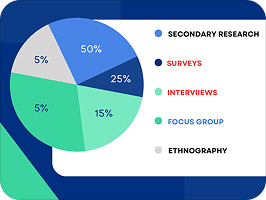Our research follows a systematic process designed to collect, analyze, and apply data, empowering businesses to make informed decisions. This process can be broadly segmented into several phases: information sourcing, information analysis, market planning, primary analysis, validation (including hypothesis testing), and publishing.

Information Sourcing
marks the initial phase where researchers identify and gather relevant data to address the research problem. This involves both primary and secondary data collection. Primary data is collected directly from respondents through methods like surveys, interviews, and focus groups, providing fresh and specific insights related to the research objectives. Secondary data includes reviewing existing information such as industry reports, academic papers, and market studies. This phase validates the data’s relevance, accuracy, and reliability, forming the foundation of our syndicated market research and tailored market strategy consulting services.

Information Analysis
follows data collection and involves examining the gathered data to identify trends, patterns, and insights. Quantitative data is analyzed using statistical tools to derive numerical insights, while qualitative data is assessed for recurring themes. This process is key for understanding market trends, customer behaviors, and competitive landscapes, offering valuable insights that influence strategic decisions. We use advanced data visualization tools and statistical software to guarantee a thorough analysis.

Market Planning
plays a crucial role in the process where researchers identify and gather relevant data to address the research problem. Both primary and secondary data collection methods are employed to gain specific insights that inform the overall strategy. Primary data, collected through direct interactions with respondents, complements secondary data gathered from industry reports, academic studies, and market studies, ensuring a well-rounded approach to solving the research problem.

Primary Analysis
involves a deep dive into the data collected directly from respondents. This phase focuses on interpreting the primary data through detailed analysis techniques such as segmentation, correlation, and regression analysis. The objective is to understand the nuances of customer preferences, market needs, and potential areas for product or service improvement. This phase provides a foundation for making evidence-based decisions and refining the market strategy based on our market research insights.

Validation
is a critical phase where the accuracy and reliability of the research findings are verified. This involves testing hypotheses formulated during the research process. Hypothesis testing includes formulating null and alternative hypotheses based on the research objectives and data analysis. Statistical tests, such as t-tests or chi-square tests, are employed to determine whether the observed data supports or refutes the hypotheses. This phase guarantees that the findings are robust and can be generalized to the broader market. Validation also involves cross-checking the data with secondary sources and revising the market plan based on the findings. Our syndicated market research approach helps guarantee that these validations are thorough and precise.

Publishing
is the final phase where research results and the market plan are documented and shared with stakeholders. This involves creating a detailed report that includes an executive summary, key findings, methodologies, and strategic recommendations. The report is clear, concise, and tailored to the needs of the audience, whether internal teams or external partners. Additionally, the findings are often presented through visual aids such as charts and graphs to enhance understanding and facilitate decision-making. These insights support businesses in aligning their strategies with the latest market trends and customer behaviors.
In summary, the market research process involves several key phases: information sourcing, information analysis, market planning, primary analysis, validation (including hypothesis testing), and publishing. Each phase plays a vital role in ensuring that the research provides valuable insights and supports effective business decision-making. From gathering and analyzing data to validating findings and communicating results, a structured approach to market research consulting services helps businesses manage the complexities of the market and make informed strategic decisions.